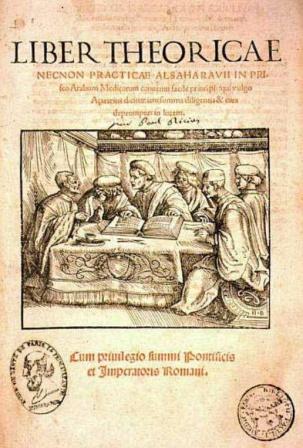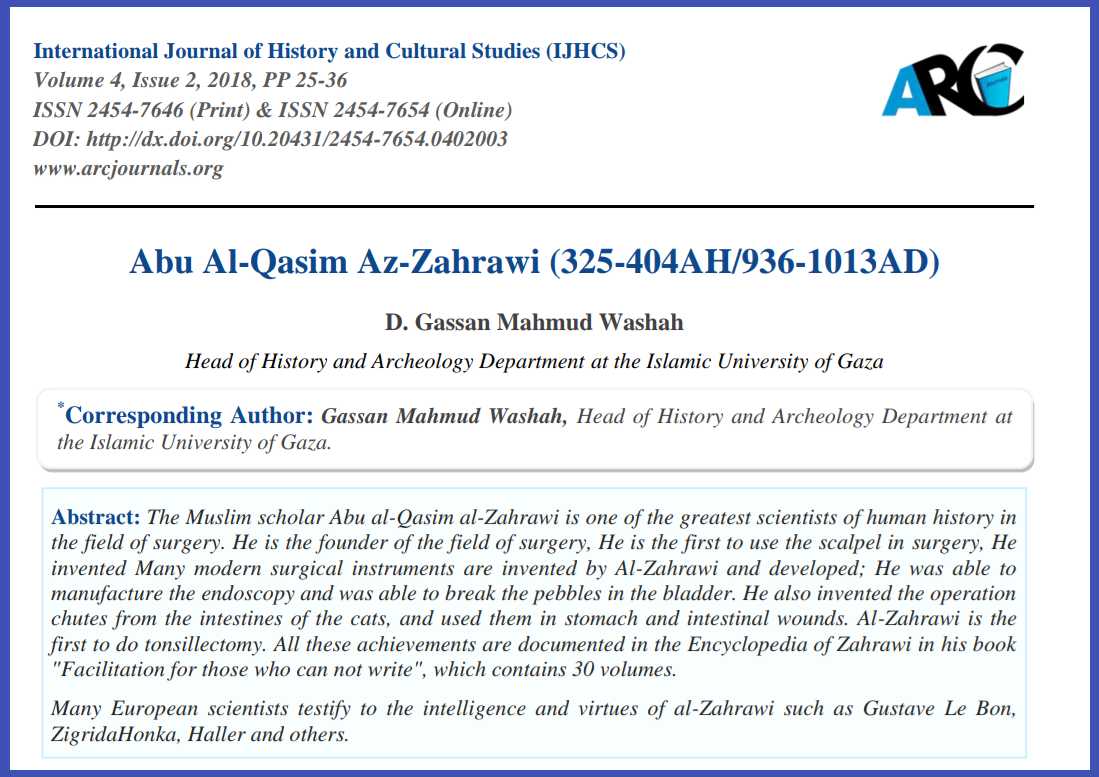Al-Zahrawi
"Abū al-Qāsim Khalaf ibn al-'Abbās al-Zahrāwī al-Ansari (Arabic: أبو القاسم خلف بن العباس الزهراوي; 936–1013), popularly known as Al-Zahrawi (الزهراوي), Latinised as Abulcasis (from Arabic Abū al-Qāsim), was an Arab Andalusian physician, surgeon and chemist. Considered to be the greatest surgeon of the Middle Ages, he has been referred to as the "father of modern surgery".
Al-Zahrawi's principal work is the Kitab al-Tasrif, a thirty-volume encyclopedia of medical practices. The surgery chapter of this work was later translated into Latin, attaining popularity and becoming the standard textbook in Europe for the next five hundred years. Al-Zahrawi's pioneering contributions to the field of surgical procedures and instruments had an enormous impact in the East and West well into the modern period, where some of his discoveries are still applied in medicine to this day. He pioneered the use of catgut for internal stitches, and his surgical instruments are still used today to treat people.
He was the first physician to identify the hereditary nature of haemophilia and describe an abdominal pregnancy, a subtype of ectopic pregnancy that in those days was a fatal affliction, and was the first to discover the root cause of paralysis. He also developed surgical devices for Caesarean sections and cataract surgeries."
(from Wikipedia; accessed 2022)
Below is a portrait of Al-Zahrawi:

This is the cover of a Latin translation of one of Al-Zahrawi's book:

Additional information on Al-Zahrawi can be found in a paper titled Abu Al-Qasim Az-Zahrawi by D. Gassan Mahmud Washah.
